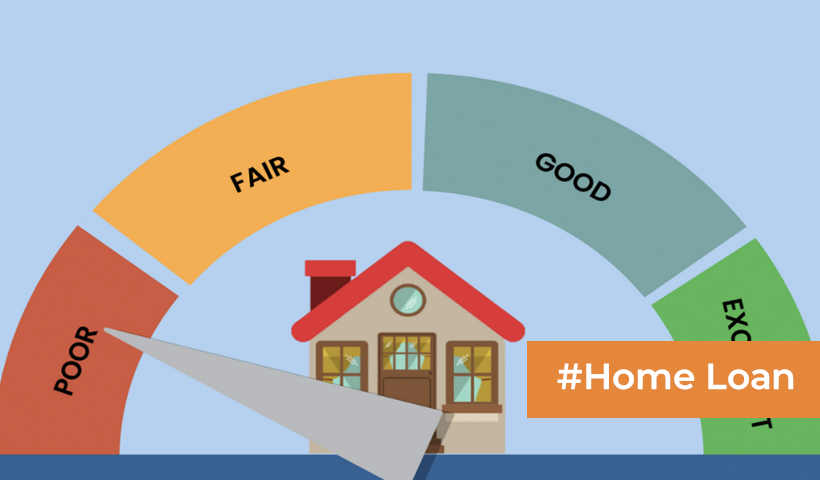20 Reasons Why Banks May Reject Your Home Loan Application in India
Owning a home is a dream shared by many in India. With the growing real estate market, securing a home loan has become a common practice. However, the path to home ownership is not always smooth, as banks often reject loan applications for various reasons. In this article, we will explore 20 common factors that could lead to the rejection of a home loan application in the Indian context.
- Low Credit Score: One of the primary factors that banks consider is the applicant’s credit score. A low credit score indicates a higher credit risk, making it difficult to secure a home loan. Maintaining a good credit score by paying bills on time is crucial for loan approval.
- Incomplete Documentation: Banks require a comprehensive set of documents to process a home loan application. Incomplete documentation, such as missing income proof or property documents, can lead to rejection. It is essential to ensure that all necessary paperwork is in order.
- Insufficient Income: Lenders evaluate the borrower’s income to determine their repayment capacity. If the income is insufficient to cover the loan amount, the application may be rejected. Applicants should be able to showcase a stable and consistent income.
- Job Instability: Frequent job changes or unstable employment history may raise concerns for lenders. A stable job with a consistent income source is vital for a successful home loan application.
- High Debt-to-Income Ratio: A high debt-to-income ratio, indicating that a significant portion of the income is already committed to existing debts, can be a red flag for lenders. It is advisable to manage existing debts before applying for a home loan.
- Property-related Issues: The property being financed must meet the bank’s criteria. Issues such as unclear property titles, legal disputes, or property valuation below the loan amount can lead to rejection.
- Co-Applicant’s Creditworthiness: If a co-applicant is involved, their creditworthiness is also considered. A weak credit profile of the co-applicant can impact the overall loan approval process.
- Age of the Applicant: Age is a significant factor in determining loan eligibility. Banks may be hesitant to lend to individuals close to retirement, as it poses a higher risk of repayment challenges.
- Geographical Location of the Property: The location of the property can influence loan approval. Properties in certain areas may be considered risky due to market volatility or legal issues.
- Nature of Employment: The nature of employment, such as being self-employed or working on a contractual basis, may pose challenges in obtaining a home loan. Lenders prefer applicants with stable, salaried jobs.
- Loan Tenure: Longer loan tenures may seem attractive due to lower monthly payments, but they can be a concern for lenders. Banks may hesitate to approve loans with extended repayment periods, especially for older applicants.
- Financial Institutions Policies: Each financial institution has its own set of policies and criteria for approving home loans. It is crucial to understand and align with the specific requirements of the chosen lender.
- Previous Loan Defaults: A history of loan defaults or late payments can significantly impact the chances of getting a home loan. Banks thoroughly investigate an applicant’s credit history before making a lending decision.
- Down Payment Percentage: While home loans cover a significant portion of the property cost, applicants are typically required to contribute a down payment. Insufficient down payment can be a reason for rejection.
- Overvaluation of Property: If the property’s value is perceived to be inflated compared to market standards, banks may reject the loan application. A realistic property valuation is essential for loan approval.
- Relationship with the Bank: Existing customers of a bank may assume an easier loan approval process. However, a strained relationship or poor banking history can lead to rejection.
- Unstable Financial Market Conditions: Economic uncertainties or fluctuations in the financial market can influence banks’ lending policies. During turbulent times, lenders may become more conservative, making it challenging to secure a home loan.
- Purpose of the Loan: Banks may inquire about the specific purpose of the loan. If the intended use is deemed high-risk or speculative, it could lead to rejection.
- Legal Issues: Involvement in any legal matters or pending court cases may raise concerns for lenders. A clean legal record is crucial for a successful home loan application.
- Inadequate Insurance Coverage: Lenders often require applicants to have insurance coverage for the property. Inadequate or lack of insurance can be a reason for rejection.
Securing a home loan in India requires careful consideration of various factors. Applicants must ensure a strong financial profile, maintain a good credit score, and provide all necessary documentation. Understanding the specific criteria of the chosen lender and addressing potential red flags can significantly increase the chances of a successful home loan application. By being aware of these 20 common reasons for rejection, aspiring homebuyers can navigate the loan approval process more effectively and realize their dream of homeownership.




